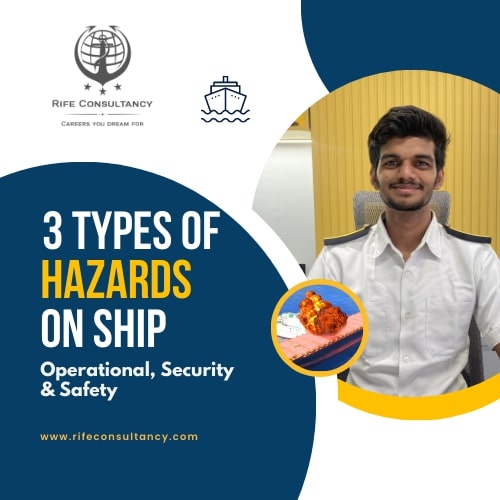
3 Types of Hazards on Ship: Operational, Security & Safety
By: Shahil Agrawal (Deck Cadet)
Table of Contents
3 Types of Hazards on Ship are as follow:
1. Operational hazard- Risks that are associated with the nature of work
Mooring operations-
Mooring operation is one of the most frequently conducted operation which carry fatal hazards with it. Mooring means fastening of a ship with the jetty or another ship using mooring ropes. While the operation is being conducted mooring winches are in operational mode which is a hazardous, and also the ropes being passed between ships and jetty are in tension which can result in breaking.
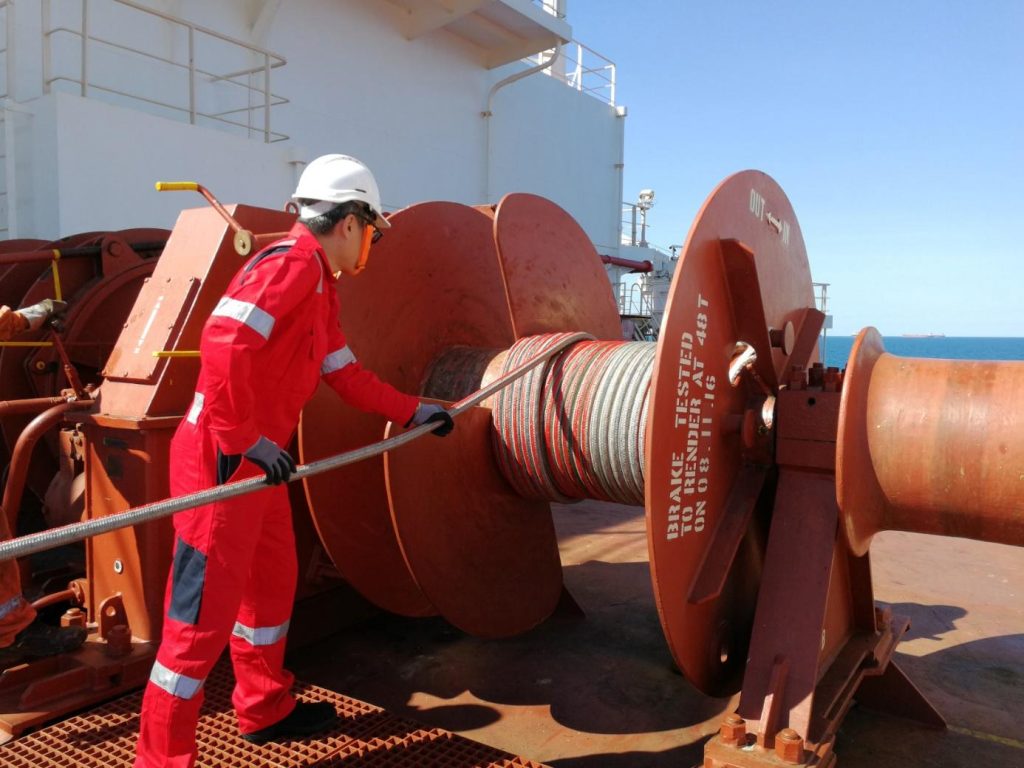
Though there are numerous safety equipment and safety procedure in relation to mooring operation. But this is a very frequent activity onboard and because of which officers and rating tend to take it very lightly due to which deaths and injuries caused due to mooring operation is very high.
Following points can be taken into consideration to avoid hazards during mooring operations:
- Safety training should be conducted periodically.
- Prior operation, toolbox meeting should be conducted and all interested personnel must be reminded of their duties.
- Regular inspection should be carried out of the winches, rollers and ropes. If any defect found, it should be repaired or replaced as soon as possible.
- Snapback zones should be marked clearly and should be avoided during the operation.
- Never try to stop moving rope with leg because you may trip and have a serious injury.
- Bridge-mooring station and bridge-tugs-jetty communication should be established effectively.
Hot work–
Any job that generates heat and source of ignitions is termed as hot work. This may include welding, flame cutting, grinding, etc. Hot work can cause serious harm to personnel and also it can cause fire.
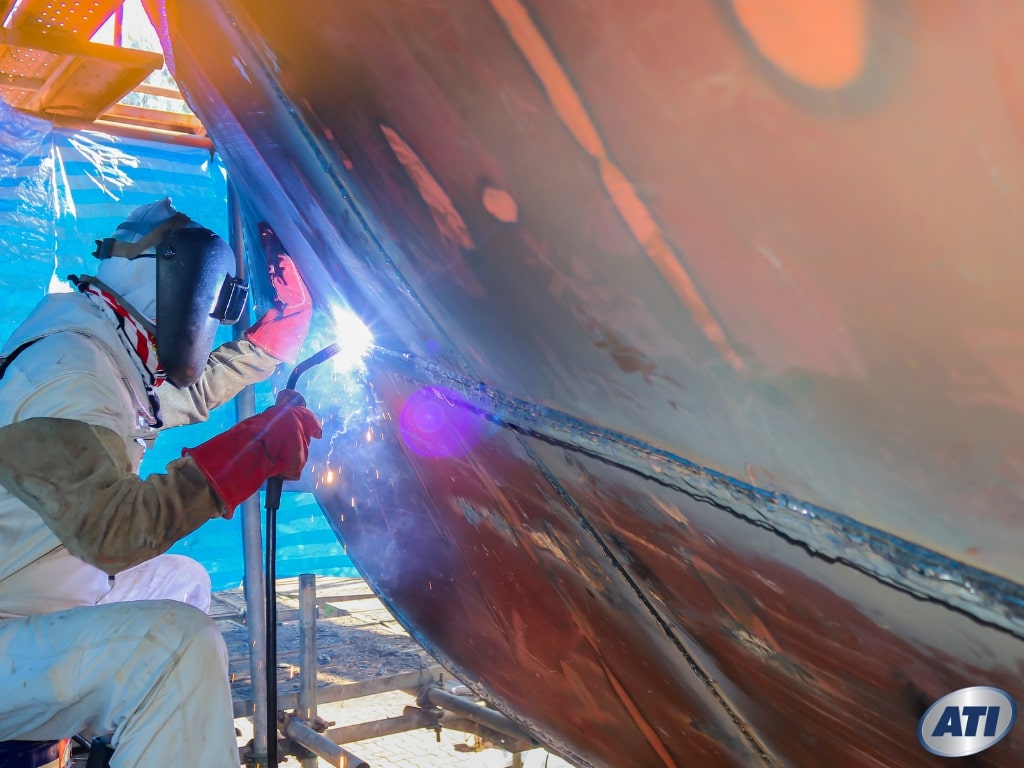
Following points can be taken into consideration to avoid hazards during Hot work operations:
- Proper PPE should be used during the job.
- Hot work should be carried out only in permitted areas.
- HC content of the area should not lie in a flammable zone.
- Proper work permit must be filled and complied with before starting the job.
Enclosed space entry–
Enclosed space entry is done occasionally, which includes entering in tanks and enclosed rooms. This activity is hazardous because enclosed spaces lack oxygen content which can suffocate a person in the space.
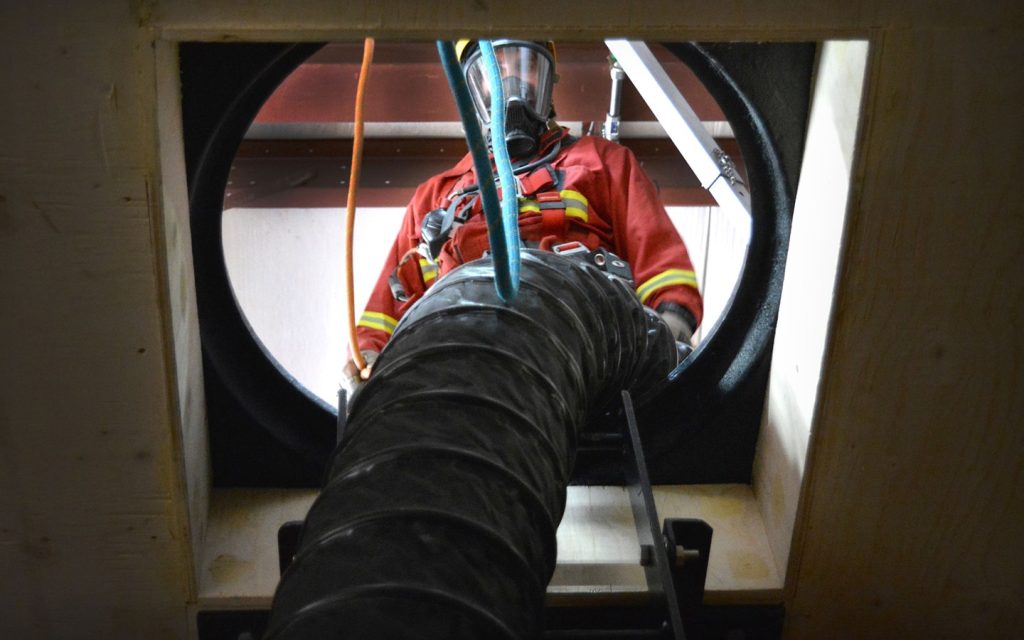
Following points can be taken into consideration to avoid hazards while working in Enclosed Space:
- Drills should be conducted regularly and diligently.
- Enclosed space atmosphere gas content should be checked prior entry and during the operation
- Every activity inside the tank must be communicated with the person standby and the bridge.
Electrical injury–
There are numerous electrical equipment and connections onboard a ship which need regular maintenance and personnel involvement. And while these jobs are being conducted there is always potential hazard associated with it.
- Following points can be taken into consideration to avoid hazards during Electrical operations:
- No electrical job must be conducted with wet hands.
- Exposed wires, and electrical connections must be handled properly and only by dedicated crew or officers.
- No electrical connection must be left unattended.
Collision–
Collision is a result of navigational negligence which can result from equipment failure or human error.
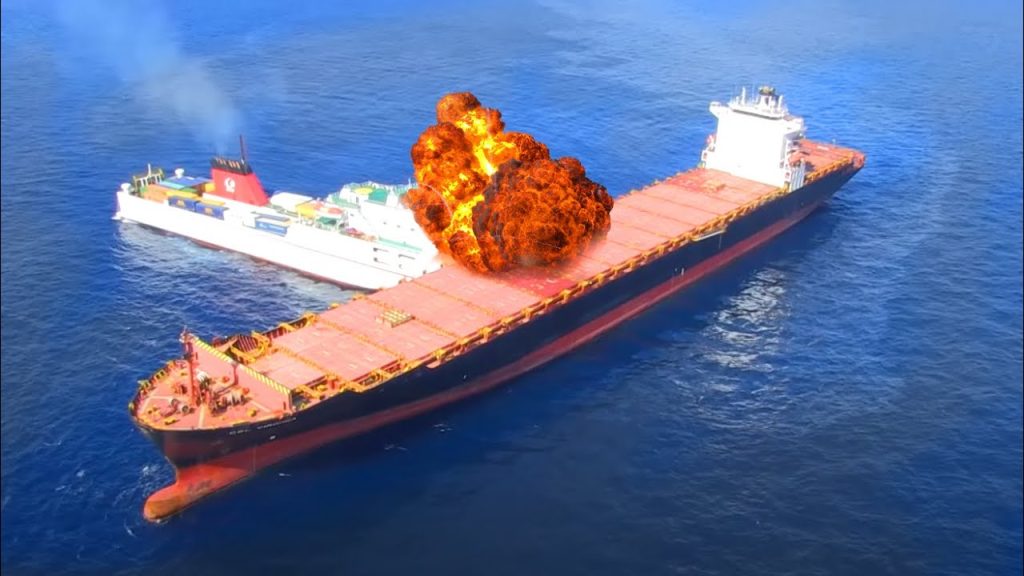
Following points can be taken into consideration to avoid hazards during Collision operations:
- Prior commencing or ending sea passage, company checklist for bridge preparation must be done methodically.
- Company guidelines for CPA and contour setting must be followed.
- Watches must be handed over to the next OOW only if he deems to be fit for the watch.
- If in doubt, the OOW must contact the Master to seek guidance.
Also Read: 10 Important qualities of a Seaferar
2. Security Hazards
Piracy–
Pirates board a ship with a motive to hijack and steal cargo and other valuable items. They use lethal weapons such RPGs, guns, etc to rob the ships. There have been cases where crew members have lost their life in piracy attacks.
Though it’s not so common on the entire globe, regions such as in Somalian water, Nigeria region, Malacca Strait, etc have seen many piracy cases. But actions by concerned organisations and governments have resulted in significant downfall in the numbers.

As a seafarer these can be among those steps which can be followed in order to avoid an attack or survive one:
- Proper anti-piracy measures must be followed while transiting High risk areas (HRA).
- Citadel must be well equipped with required items.
- Concerned parties must be informed while in piracy prone areas.
- Proper drill and training must be conducted as per company guidelines in order to make sure that every crew and officer knows their duty in grave situations.
Stowaways–
Usually stowaways do not possess a threat to crew life but carrying a stowaway is not permitted by the country of arrival.
So, if a stowaway is found onboard during a passage, the ship might have to divert back to the previous port and have to go through various formalities which may delay the shipment of cargo, therefore resulting in a loss to the owners.
Thorough inspection should be carried out prior every departure throughout the ship each and every corner and compartments.
3. Safety Hazards
Man overboard
When a crew works on deck, he is exposed to falling from the ship especially if he is working near the ship side or over-side. And this situation can lead to death or can cause serious harm to the person. Especially when the weather is rough and/or sea temperature is very low the search and rescue operation can be critical to locate and revive.
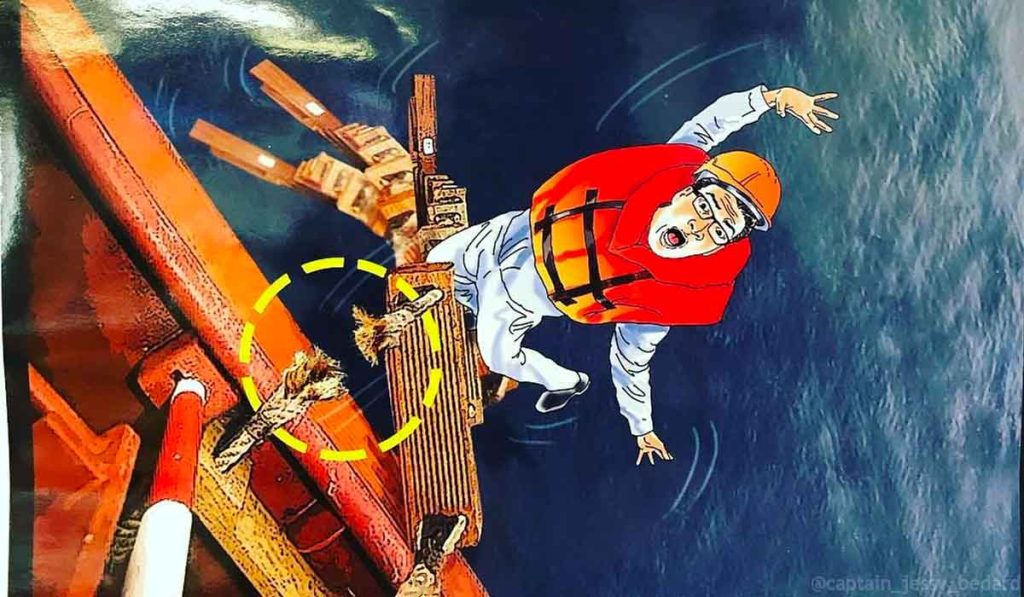
To avoid this situation to occur:
- If someone is working in such a situation, he must use a safety harness and have an attendant with him throughout the operation.
- No such job must be carried out in rough weather which has a chance of having the person overboard.
- If working over-side proper basket arrangement must be made to avoid person from directly falling into water.
Equipment failure–
Marine industry has seen a lot of incidents which have occurred because of equipment failure during the operation such as breaking of wire during lifeboat lowering.
To avoid such incidents the only thing that needs to be done is carrying out proper maintenance and inspection of all equipment and items onboard and replacing the old ones on time. Over Reliance on automations and remote equipment can lead to more incidents.
Human negligence–
Almost every job being done onboard requires human involvement. Human error on board ships can have catastrophic consequences resulting in loss of lives, property, and environmental damage.
To prevent such incidents, crew members should be adequately trained and equipped, and ships should have safe equipment and follow established protocols. A culture of safety should be instilled among crew members. Finally, a robust safety management system should be implemented to minimise the risk of incidents.
And anyone found inappropriate for the job in relation to fitness and presence of mind, must not be allowed to carry out the job.
Click here to follow our Social Media Account to get updates like this
Also Read: 14 Things to know and carry before joining the ship: A complete checklist
Click here to join our Telegram chanel
You will get information, news, and support related to Merchant Navy.
